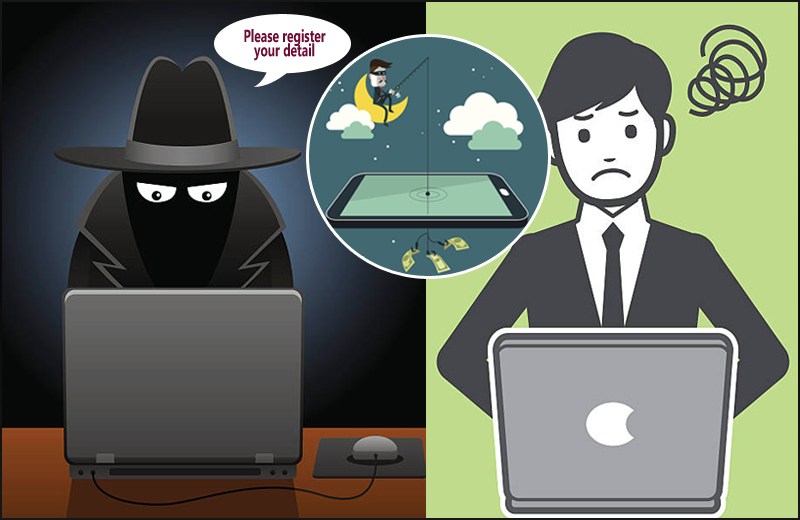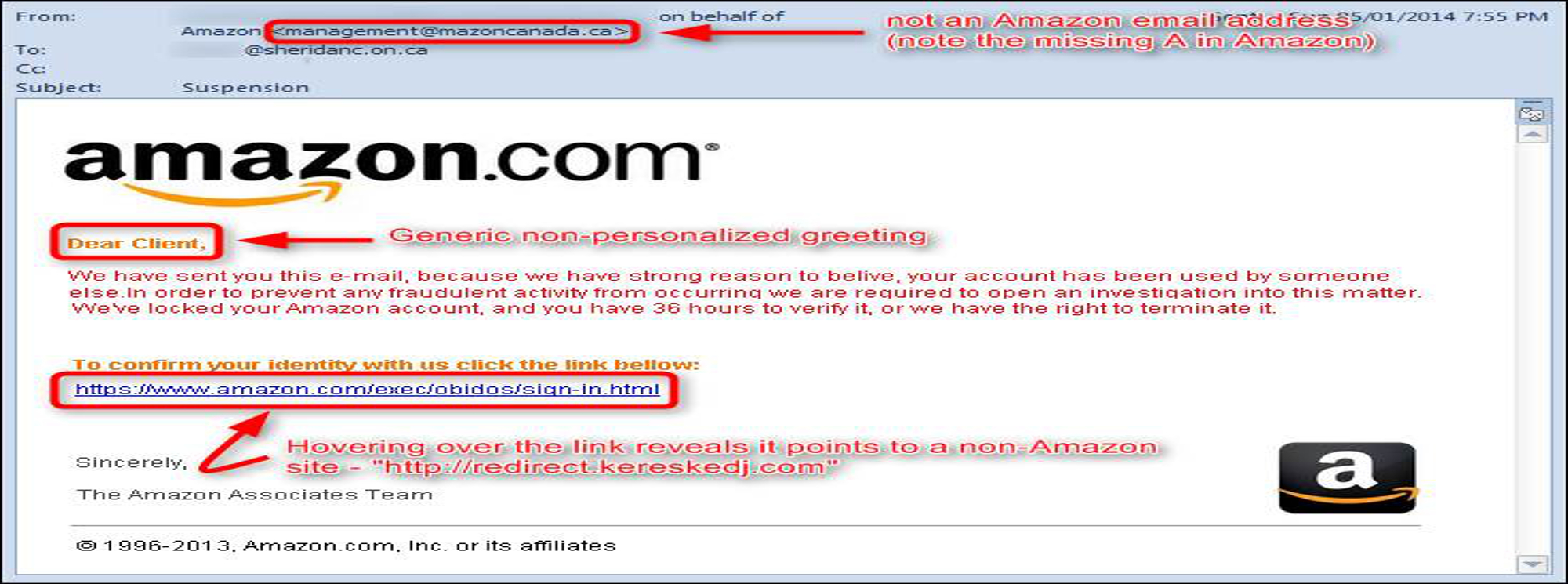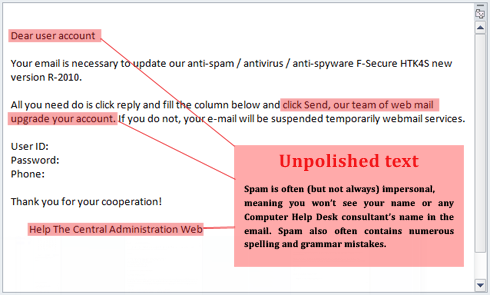Traps that you want to keep your eye on when shopping online

As the internet become a vital facet of everyday life, sadly, more and more individuals are misusing it for illegal activities. Cybercriminals have become advanced when it comes to the tricks they use. Commonly used tactics such as trojan viruses and phishing have continued to become inventive, which has forced internet users to become more watchful and vigilant.
Traps that you want to keep your eye on when shopping online
Classic emails scams
Emails are still by far the most popular and frequent method of infection online. A huge majority of all emails that are sent today are what is known as spam. Basically, spam messages are messages that you never see coming or ask for such as offers of cheap credit, discount Viagra, discounted hotel bookings, and so on and so forth.
More often than not, these offers are in no shape, way or form legitimate and they always come with links attached that will connect you to websites that have been infected with a range of nasty programs, Trojans, and viruses. Sometimes when you open one, malicious software becomes installed on your device or you will be directed to a fake website looking to make use of your personal data, which is what is referred to as phishing.
Usually, spam messages are sent popularly during the holidays or major events or hot gossip; some will also include subject lines that are designed to make you open the emails with intriguing subject lines like ‘You must heck out this funny video!’
Before you take a look at any email sent to you, some of the things that you need to ask yourself include:
- Do I know the sender?
- Does the subject line make sense to you or is it a little vague?
- I’m I expecting an attachment? From anyone?
If by any chance you have any doubts, you should delete the e-mail unopened to avoid possible scams.
Phishing

Another well known online scam is known as phishing and this is how it works:
You receive an email asking you to connect to a link that will direct you to a website. Upon getting to the website, you will be asked to enter some personal information such as a password or a bank account number. In most instances, these emails are designed to appear as though they are from a bank, from a popular online store like eBay or Amazon or from a well-known payment system such as PayPal. When you click on the link provided and actually provide your personal details or the information provided, cybercriminals will get hold of this information and use it to their advantage.
Fortunately, there are some things that can help you identify whether you are dealing with a phishing email such as:
- The logos and colours used in phishing emails look as though they are from legitimate companies. However, they are often full of spelling and grammar errors, which should be an instant red flag.

- Most phishing emails also address the user as “Dear customer” rather than using your actual name, which should be a very strong indication of a phishing attempt. Nowadays, where even magazine subscriptions can be personalized, a legitimate communication from a legitimate service is unlikely not to use your actual name.

- Finally, correspondence from a valid financial institution such as a bank would never ask for sensitive information such as PIN numbers or TAN numbers over email. So, if you receive such as email, you should delete it immediately.
As a rule of thumb, you should never use links in emails which lead to a page that is requesting sensitive information. Instead, you should always use the bookmarks that are saved in your browser or enter the address yourself in the address line of your browser.
The become rich overnight scam
In the current job market, scammers are now taking advantage of people that are looking for jobs. What these scammers do is send job offers and vacant positions to individuals via email. Often, these offers promise great salaries and flexibility that allows you to work from home. The idea of making an extra income can be very alluring.
Sadly, these offers are usually too good to be true. As such, when you receive such emails, the best way to handle them is to delete them immediately, no matter how ‘real’ the offer might appear.
Download new anti-virus software to protect your computer
Imagine this: You are minding your own business shopping online. All of a sudden, you receive a pop-up message notifying you that your device or computer has been infected with Trojans, worms and viruses even though you have security software installed. Generally, these pop ups offer free antivirus software designed to solve your issues. Most times, such programs, although fake, often bear names that sounds similar to legitimate security application.
These pop ups prey on individuals that are afraid of infected computers. When you download and install them, the malicious software can be used to gain access to your device or gadget so that it can access your personal data that can be resold to cybercriminals. If you should come across such a pop up when doing your online shopping, ignore it.
In any case, you should always have a reputable antivirus solution installed so that you can always be assured of your safety. If you receive such a pop message, simply use your current security solution to conduct a full system scan.
Conclusion
Although cybercriminals are getting more and more creative by adapting their scams for new applications and tech, most of the scams are simply recycled to target new unsuspecting victims. If you suspect a scam, you should always trust your gut instinct. If something sounds too good to be true, then it probably is- a healthy dose of suspicion can help you avoid online fraud and scams.

